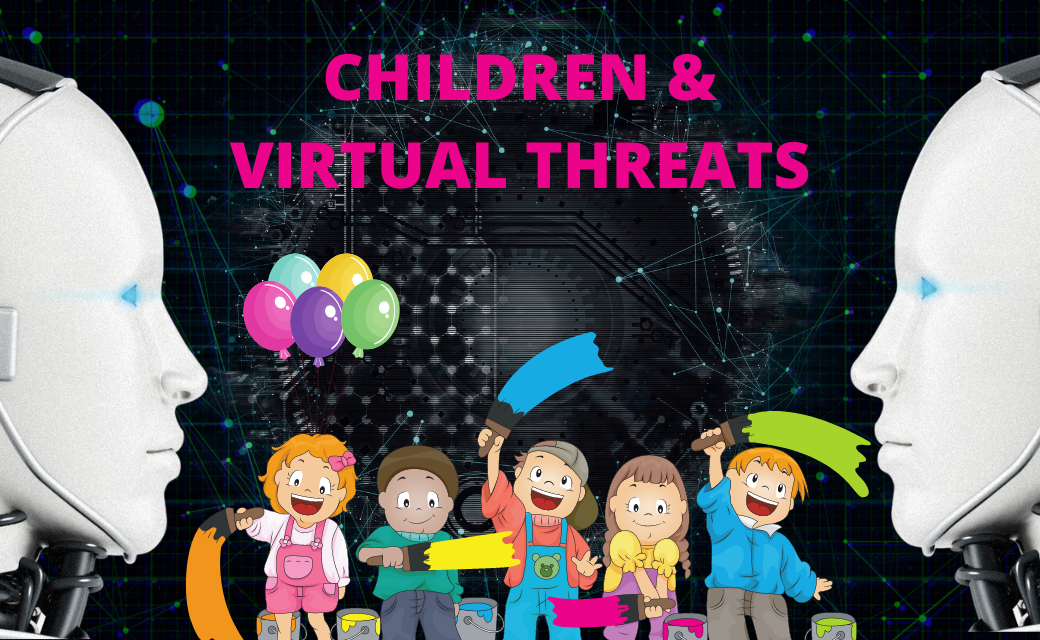Children & Virtual threats
British police have recently investigated the case of a minor who was allegedly subjected to a virtual gang rape in the metaverse. The girl was reportedly wearing a virtual reality headset and playing an immersive game when her avatar was attacked by several others. The incident has attracted international attention and raised questions about the safety of virtual reality spaces.
The metaverse is a virtual-reality space where users can interact with a computer-generated environment and other users. It is the next evolution in social connection and the successor to the mobile internet.
The metaverse is a network of shared, immersive virtual worlds where people can connect with friends, create and play games, work and shop. It is an online, 3D universe that combines multiple different virtual spaces. The metaverse will allow users to work, meet, play games, and socialize together in these 3D spaces. The metaverse is like a cyberspace, or an evolved, three-dimensional internet where logging in isn’t necessary. The metaverse will include familiar 2D experiences, as well as ones projected into the physical world and fully immersive 3D ones too. You’ll be able to access the metaverse on different devices like your phone or computer, as well as virtual reality devices where you’re fully immersed. The metaverse isn’t just for gamers or developers, it is for everyone.
The question of whether virtual rape is “really rape” goes back to at least 1993, when the “Village Voice”published an article about “a rape in cyberspace”.
Julian Dibbell covered a virtual rape that took place in the online community LambdaMOO in a 1993 piece for “The Village Voice.” The piece, titled “A Rape in Cyberspace”, recounted how a man named Mr. Bungle used a doll to force other users to have sex with one other and to do horrific things to their own bodies. The event made people wonder about the nature of online communities and the boundaries of free speech. Since these kinds of things can happen in the metaverse, it seems necessary to improve security protocols in virtual reality environments.
This is a crime that has happened against a group that is considered as minors and obviously need the support and protection from the adults, both families and authorities.
Violent threats, cyberbullying, racism, and sexual harassment are among the offenses that can be committed against children in online platforms, including the metaverse. In contrast to other platforms, the metaverse lacks content filters, and a large number of its apps depend on individuals to control their own experience by reporting, muting, or blocking other users. There are groups which are more vulnerable to this sort of abuse. Young children, women and young girls, and people from some ethnic minorities are in this category. Children with disabilities should not be excluded. Also Muslims who are specifically marginalized in some areas of the world can be targeted by those who aim to harm others.
Ensuring the safety of youngsters, both male and female, while they use the metaverse is crucial. In addition to encouraging their child to communicate to them about their online interactions, parents should have a conversation with their child about who they are talking to, who they are interacting with online, and what they are doing in the metaverse.
It is necessary for adults to use the site themselves. They ought to become acquainted with the platform that their offspring is utilizing. They will be better able to comprehend the platform’s characteristics and recognize any possible hazards as a result. Enabling safety settings and parental controls is essential. These are features found on most platforms that can be turned on to shield kids from offensive material.
Freemuslim welcomes the evolutionary progressions in various areas of social development but places an important emphasis on parental awareness for platforms kids use.
Metaverse is an example of immense advancements in technology and a huge addition to people’s social life. Apart from the amazing abilities it has and its multiple capabilities, it is possible that it could harm the users in some different ways. And it could potentially hurt anyone spiritually, especially the groups of people who are more vulnerable, such as young children, people with disabilities, and minority groups such as Muslims.
Freemuslim expects policymakers to invest in VR and metaverse research in order to prevent platforms from manipulating the users online, both sexes included and at any age.











